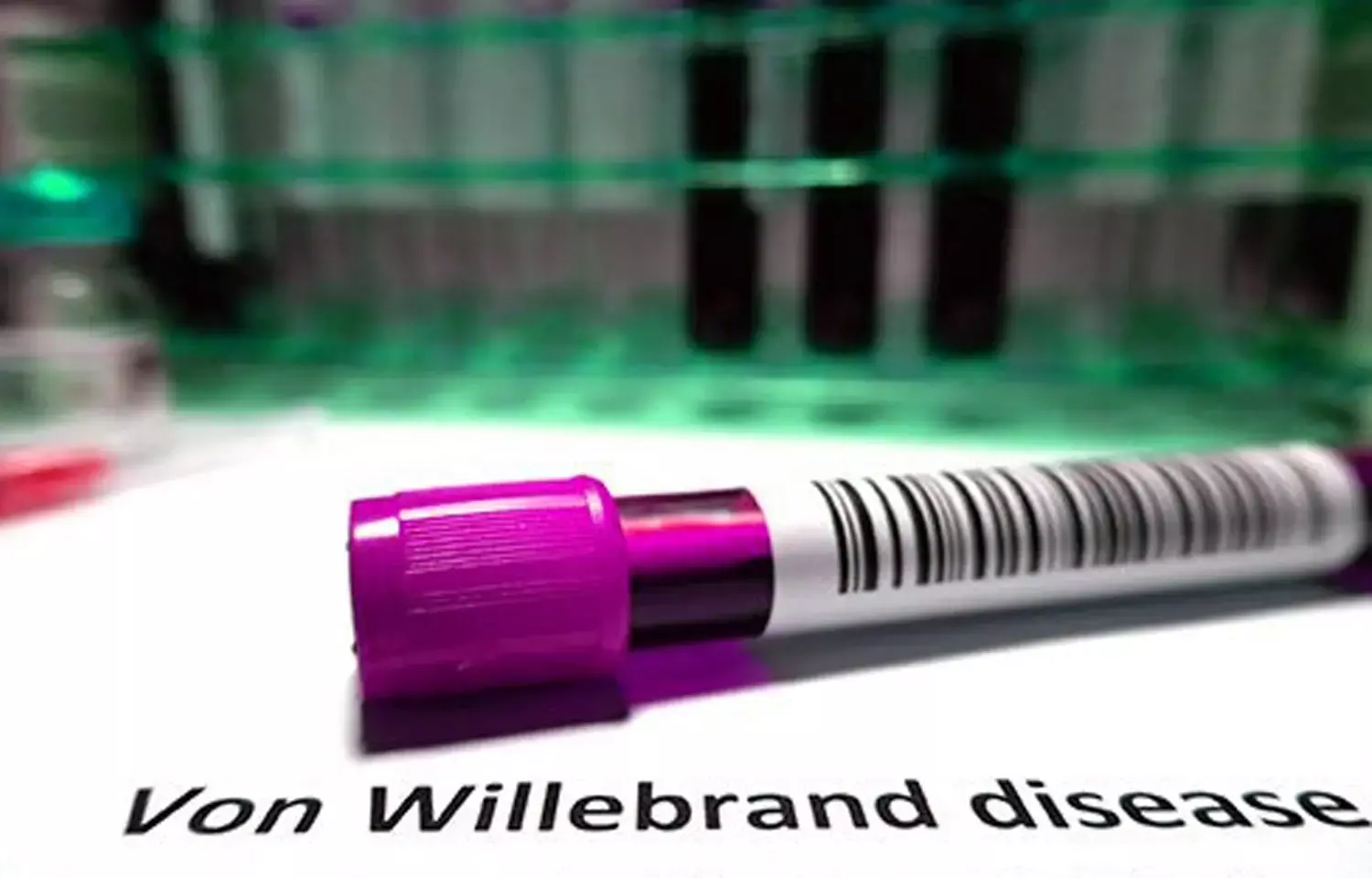- Home
- Medical news & Guidelines
- Anesthesiology
- Cardiology and CTVS
- Critical Care
- Dentistry
- Dermatology
- Diabetes and Endocrinology
- ENT
- Gastroenterology
- Medicine
- Nephrology
- Neurology
- Obstretics-Gynaecology
- Oncology
- Ophthalmology
- Orthopaedics
- Pediatrics-Neonatology
- Psychiatry
- Pulmonology
- Radiology
- Surgery
- Urology
- Laboratory Medicine
- Diet
- Nursing
- Paramedical
- Physiotherapy
- Health news
- Fact Check
- Bone Health Fact Check
- Brain Health Fact Check
- Cancer Related Fact Check
- Child Care Fact Check
- Dental and oral health fact check
- Diabetes and metabolic health fact check
- Diet and Nutrition Fact Check
- Eye and ENT Care Fact Check
- Fitness fact check
- Gut health fact check
- Heart health fact check
- Kidney health fact check
- Medical education fact check
- Men's health fact check
- Respiratory fact check
- Skin and hair care fact check
- Vaccine and Immunization fact check
- Women's health fact check
- AYUSH
- State News
- Andaman and Nicobar Islands
- Andhra Pradesh
- Arunachal Pradesh
- Assam
- Bihar
- Chandigarh
- Chattisgarh
- Dadra and Nagar Haveli
- Daman and Diu
- Delhi
- Goa
- Gujarat
- Haryana
- Himachal Pradesh
- Jammu & Kashmir
- Jharkhand
- Karnataka
- Kerala
- Ladakh
- Lakshadweep
- Madhya Pradesh
- Maharashtra
- Manipur
- Meghalaya
- Mizoram
- Nagaland
- Odisha
- Puducherry
- Punjab
- Rajasthan
- Sikkim
- Tamil Nadu
- Telangana
- Tripura
- Uttar Pradesh
- Uttrakhand
- West Bengal
- Medical Education
- Industry
ASH 2021 guidelines on the management of von Willebrand disease

USA: A panel of experts from four esteemed organizations have released 2021 guideline on the management of von Willebrand disease. The guideline, published in the journal Blood Advances are intended to support patients, clinicians, and health care professionals in their decisions about management of VWD.
The guideline is developed by American Society of Hematology (ASH) in collaboration with the International Society on Thrombosis and Haemostasis (ISTH), the National Hemophilia Foundation (NHF), and the World Federation of Hemophilia (WFH).
von Willebrand disease (VWD) is a common inherited bleeding disorder. Management of the disorder remains challenging because of wide variability in individual patient bleeding symptoms, wide variability in clinical practice, and lack of high-certainty evidence to guide decision making.
For developing the guideline ASH, ISTH, NHF, and WFH formed a multidisciplinary guideline panel. The panel used the GRADE approach, including GRADE Evidence-to-Decision frameworks, to assess evidence and make recommendations, which were subject to public comment.
The panel agreed on 12 recommendations and outlined future research priorities.
Recommendations include:
- In patients with VWD with a history of severe and frequent bleeds, the guideline panel suggests using long-term prophylaxis rather than no prophylaxis.
- In patients for whom desmopressin is a valid treatment option (primarily type 1 VWD) and who have a baseline VWF level of <0.30 IU/mL, the panel suggests performing a trial of desmopressin and treating based on the results over not performing a trial and treating with tranexamic acid or factor concentrate.
- In these patients, the panel suggests against treating with desmopressin in the absence of desmopressin trial results.
- In patients with VWD and cardiovascular disease who require treatment with antiplatelet agents or anticoagulant therapy, the panel suggests giving the necessary antiplatelet or anticoagulant therapy over no treatment.
- The panel suggests targeting both FVIII and VWF activity levels of ≥0.50 IU/mL for at least 3 days after surgery.
- The panel suggests against using only FVIII ≥0.50 IU/mL as a target level for at least 3 days after surgery.
- In patients undergoing minor surgery or minor invasive procedures, the panel suggests increasing VWF activity levels to ≥0.50 IU/mL with desmopressin or factor concentrate with the addition of tranexamic acid over raising VWF levels to ≥0.50 IU/mL with desmopressin or factor concentrate alone .
- The panel suggests giving tranexamic acid alone over increasing VWF activity levels to ≥0.50 IU/mL with any intervention in patients with type 1 VWD with baseline VWF activity levels of >0.30 IU/mL and a mild bleeding phenotype undergoing minor mucosal procedures.
- The panel suggests using either hormonal therapy (combined hormonal contraception [CHC] or levonorgestrel-releasing intrauterine system) or tranexamic acid over desmopressin to treat women with VWD with heavy menstrual bleeding who do not wish to conceive.
- The panel suggests using tranexamic acid over desmopressin to treat women with VWD and heavy menstrual bleeding who wish to conceive.
- In women with VWD for whom neuraxial anesthesia during labor is deemed suitable, the panel suggests targeting a VWF activity level of 0.50 to 1.50 IU/mL over targeting an activity level of >1.50 IU/mL to allow neuraxial anesthesia.
- The guideline panel suggests the use of tranexamic acid over not using it in women with type 1 VWD or low VWF levels (and this may also apply to types 2 and 3 VWD) during the postpartum period).
"These guidelines make key recommendations regarding prophylaxis for frequent recurrent bleeding, desmopressin trials to determine therapy, use of antiplatelet agents and anticoagulant therapy, target VWF and factor VIII activity levels for major surgery, strategies to reduce bleeding during minor surgery or invasive procedures, management options for heavy menstrual bleeding, management of VWD in the context of neuraxial anesthesia during labor and delivery, and management in the postpartum setting," concluded the authors.
"ASH ISTH NHF WFH 2021 guidelines on the management of von Willebrand disease," is published in the journal Blood Advances.
DOI: https://ashpublications.org/bloodadvances/article/5/1/301/474884/ASH-ISTH-NHF-WFH-2021-guidelines-on-the-management
Dr Kamal Kant Kohli-MBBS, DTCD- a chest specialist with more than 30 years of practice and a flair for writing clinical articles, Dr Kamal Kant Kohli joined Medical Dialogues as a Chief Editor of Medical News. Besides writing articles, as an editor, he proofreads and verifies all the medical content published on Medical Dialogues including those coming from journals, studies,medical conferences,guidelines etc. Email: drkohli@medicaldialogues.in. Contact no. 011-43720751


